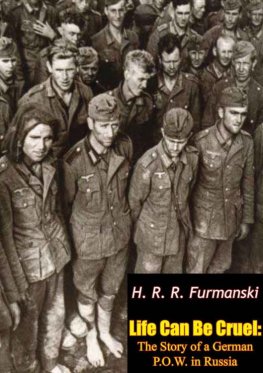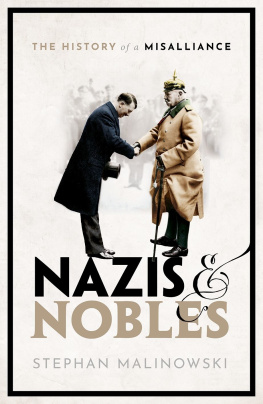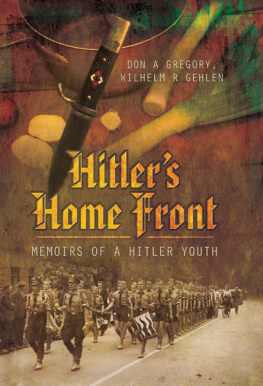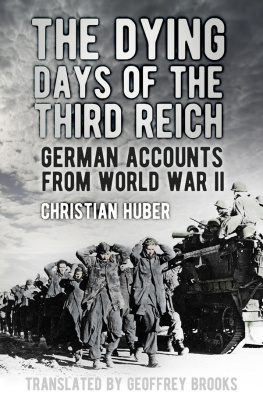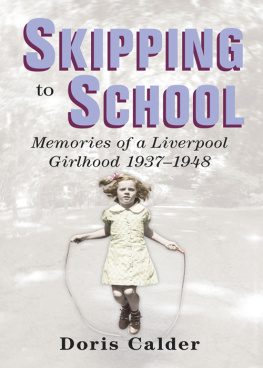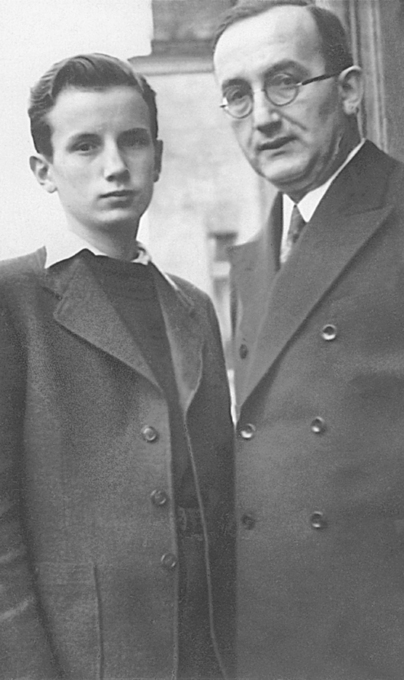ALSO BY JOACHIM FEST
Inside Hitlers Bunker: The Last Days of the Third Reich (2005)
Speer: The Final Verdict (2002)
Plotting Hitlers Death:
The German Resistance to Hitler (1996)
Hitler (1974)
The Face of the Third Reich:
Portraits of the Nazi Leadership (1970)
The author with his father in early 1941
Copyright Rowohlt Verlag GmbH, 2006
Originally published in German by Rowohlt Verlag GmbH, Germany, in 2006 Translation copyright Martin Chalmers, 2012
First published in English in Great Britain by Atlantic Books in 2012
Introduction and footnotes copyright Herbert A. Arnold, 2013
All photos reproduced here are the property of the Fest family, except for the photo on , whose copyright owner is unknown.
Production Editor: Yvonne E. Crdenas
All rights reserved. No part of this publication may be reproduced or transmitted in any form or by any means, electronic or mechanical, including photocopying, recording, or by any information storage and retrieval system, without written permission from Other Press LLC, except in the case of brief quotations in reviews for inclusion in a magazine, newspaper, or broadcast. For information write to Other Press LLC, 2 Park Avenue, 24th Floor, New York, NY 10016. Or visit our Web site: www.otherpress.com
The Library of Congress has cataloged the printed edition as follows:
Fest, Joachim C., 1926-2006.
[Ich nicht. English]
Not I : memoirs of a German childhood / by Joachim Fest; Translated from the German by Martin Chalmers; edited by Herbert A. Arnold.
pages cm
Originally published in Germany by Rowohlt Verlag GmbH in 2006.
ISBN 978-1-59051-610-2 (hardcover) ISBN 978-1-59051-611-9 (ebook)
1. Fest, Joachim C., 1926-2006Childhood and youth. 2. Anti-Nazi movementGermanyWorld War IIBiography. 3. HistoriansGermanyBiography. 4. National socialism. 5. GermanyNational socialismBiography. I. Chalmers, Martin, translator. II. Title.
DD86.7.F47A313 2013
907.202dc23
[B]
2013018230
v3.1
For my parents
Contents
Introduction
BY HERBERT A. ARNOLD
This is a quite unusual memoir in several respects, yet it is a memoir all the same. Ever since St. Augustines Confessions, the genre has been defined as an ex post facto ordering of selective parts of a persons past, to explain how he or she became who they are at the moment of retrospective. Achievements of adulthood tend to dominate, while childhood and youth are often underreported. Not here. Fest insists in his subtitle and in his book on describing in considerable detail his early years, between his birth in 1926 and the early postwar years; he leaves out altogether the adult achievements for which he is actually known, and ends with a brief postscript about his reaction to the unification of Germany in 198990.
Moreover, instead of focusing on his own life, he chooses to devote an extraordinary amount of attention to his father, of whom he presents an astonishing portrait. The other emphasis is on the times as experienced by an intelligent but naive youngster and his education, both formal and informal. And they are unusual times, indeed. Born into the Weimar Republic and its social and political turmoil, Fest has just begun school when the Nazis come to power in 1933. They and his familys firm and costly refusal to cooperate with the new regime will shape the narrative until near the end of the war, when young Joachim is drafted, survives the battle at Remagen, and is captured by American troops. He returns to Berlin, the city with which he identifies most strongly, and begins his work as a journalist and, eventually, historian of recent German history.
What makes this book so remarkable, however, and may well explain its extraordinary success in Germany, where it became a best seller with staying power, are the portraits of his family, of fellow Germans, and of the times. A major part of that success lies in the complexity, the contradictions, and the conflicts endured by the characters in this memoir. No simple black-and-white picture, good and evil, right and wrong conflictsalthough they are there, of coursebut the conflicted and sometimes self-contradictory nature of the protagonists makes for compelling reading. Here are real and not always likable people trying to live a life guided by principles which are in direct and consciously maintained conflict with the prevailing political and social environment. And here is the record of their battles, their survival, and the cost of refusing to collaborate with a state and a regime they recognized as evil earlier than most.
Focusing on the father, as the author does, demonstrates these contradictions most tellinglyand is a clever narrative stroke by the author, who clearly knows about his own internal contradictions, which he only touches upon on occasion. Johannes Fest is a bundle of just such contradictions. An upright conservative Catholic head of a primary school in predominantly Protestant Prussia, he is active in the Zentrum, the political arm of Catholicism in the Weimar Republic. He is also an active member of the Reichsbanner, a conservative paramilitary organization set up to combat the corresponding groupings of both Communists and Nazis, with whom they engage in bloody street fights.
Such associations normally clearly identify a right-wing conservative, middle-class radical, tailor-made for a career in the NSDAP, the National Socialist Workers Party, and the new order. Instead, and quite startlingly, he is a staunch supporter of Weimar democracy and intrepid opponent of the Nazis. He continues in this opposition, much to the consternation of his wife and to the detriment of the family, even after it costs him his job and social position and after the authorities try to tempt him to reverse his stance. Indeed, he revels in his outsider status, as does his son. That is the reason for the title, supposedly based on the Gospel of Matthew, and for the motto of the family: Us against the world. Again a contradiction, since this echoes Viel Feind, viel Ehr (Many enemies equals great honor), a popular saying of German right-wing conservatives and militarists. Yet here it means the inner emigration of the family unit, the mutual support, and the rejection of the dominant spirit of the times.
The fathers life also demonstrates how ineffective even the most determined opponents of Nazism were in practiceand how conflicted. Every time Hitler achieved one of his early coupsthe annexation of Austria, the defeat of FranceJohannes Fest was torn. He had wanted the union with Austria for the Weimar Republicbut not for Hitler and not as annexation; he reveled in the defeat of France as a justified revenge for her intransigence and spitefulness toward Weimarbut not as a victory for Hitler.
The German patriot and the antifascist were in constant conflict with each other, a situation that would become even more serious as the war progressed and the first inklings of the Holocaust became evident. Here Festboth the father and the sondepart most clearly from many other Germans who have argued ignorance after the war. The Fests insist that information was available, even if not easily corroborated, and that the nature of the regime and its deeds were clearly visible to all who wanted to see. They would therefore also not accept what they saw as the paroxysms of guilt after the warand thus, once again, found themselves at odds with their society and their countrymen. It is this outsider status Fest sees as the distinctive characteristic of his family, a tradition honed under Nazism but proudly maintained throughout: they are mavericks, outsiders, not unlike the characters of Thomas Manns narratives, which Joachim admires and his father condemns because of Manns earlier nonpolitical views.


